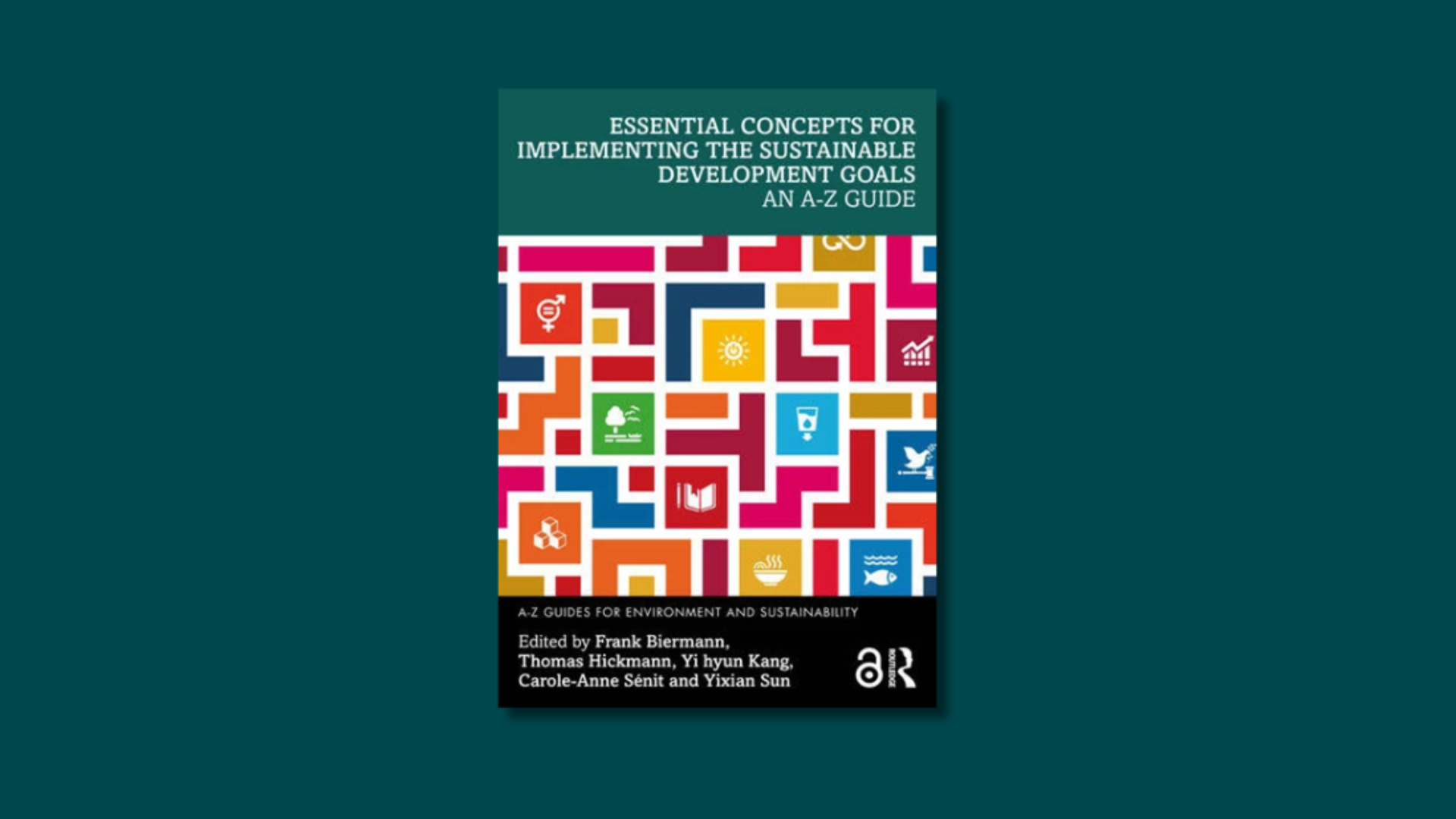Essential Concepts for Implementing the Sustainable Development Goals: An A-Z Guide
Development Goals, edited by Frank Biermann, Thomas Hickmann, Yi hyun Kang, Carole-Anne Sénit, Yixian Sun, provides over 100 entries which describe an important concept or term, using practical examples to illustrate how it connects to the overall debate about sustainable development.
NORRAG’s Executive Director, Moira V. Faul, with Liliana Andonova and Dario Piselli, drew on their open-access book to contribute the entry on Effectiveness:
“The notion of effectiveness is central to discussions of the Sustainable Development Goals (SDGs) and to their implementation. Ever since their adoption, the SDGs have served as a normative framework for benchmarking progress towards sustainability. And yet, as the world continues to be off track to achieve the 2030 Agenda (United Nations 2024), critical questions on more effective implementation remain. To address continuing challenges in conceptualizing, measuring and operationalizing effectiveness for sustainability, we define effectiveness as the contribution to implementing the SDGs through a set of pathways and institutional factors that affect actors and their collective capacity to advance relevant objectives and public purpose (Andonova et al. 2022).
Multiple approaches exist to assess the effectiveness of the SDGs. So far, the formal attainment of targets and indicators, including variation across and within SDGs and polities, has been the main approach to understanding effectiveness. In this way, statistical knowledge is codified into authoritative practice in SDG monitoring. The elaboration of quantitative indicators provides opportunities to monitor certain aspects of SDG implementation and for comparability across institutions and SDGs. However, quantification narrows the scope of the SDGs to what can be measured only and elides other forms of knowledge (Mbembe 2019). Furthermore, even if the adopted indicators show goal attainment, effectiveness could be endogenous to their level of ambition and/or external factors (Andonova et al. 2022; Widerberg et al. 2023).
Effectiveness also goes beyond a single SDG. Detecting the many cross-cutting and interconnecting aspects of the SDGs is needed to facilitate theoretical and methodological advances in research and also inform more systemic and effective solutions for sustainability. Since SDG interlinkages vary across world regions, effectiveness depends on detecting those nexuses that are relevant to different localities rather than assuming global homogeneity (Faul and Laumann 2024).
In practice, however, concerns abound about the effectiveness of governance by goal-setting and the SDGs. While the SDGs have been effective in framing discourses around sustainable development, they show otherwise limited political impact (Biermann et al. 2022). The integration of SDG objectives into national policies and agency capacities is unclear and highly variable. Subnational governments and coalitions appear to be more proactively integrating the SDGs into their work, and while international organizations have orchestrated interlinkages across SDGs, they appear to lack sufficient capacity for their effective implementation.
Therefore, another prominent line of inquiry focuses on the effectiveness of multi-stakeholder partnerships as the ‘means of implementation’ (SDG 17.16 and 17.17) towards achieving sustainable development and legitimating global governance (Andonova 2017). However, many partnerships are inactive, and many lack resources for achieving their objectives (Widerberg et al. 2023). While a partnership may be success-fully established, causal analysis is needed to link a partnership with problem-solving for sustainability (Andonova et al. 2022).
Research suggests several criteria that need to be fulfilled for more effective implementation. For instance, the effectiveness of multi-stakeholder partnerships for the SDGs should depend on five different conditions, including goal attainment, effective collaboration, value created for partners and impacts on other institutions and on affected constituencies (Andonova et al. 2022). Other factors shaping effectiveness of SDG implementation have also been identified, such as examining contractual arrangements, credible commitment of resources, adaptability and innovation. This theoretical approach can be applied across different areas, disciplines and levels of governance, using complementary method-ologies to fully assess potential contributions to SDG effectiveness. Working with an expanded conceptualization of effectiveness – such as that we offer here – will be crucial to realizing the SDGs and developing the next global sustainability agenda.”
Access the open-access book to read more essential concepts for implementing the SDGs.
References
Andonova, L. B. (2017). Governance Entrepreneurs: International Organizations and the Rise of Global Public-Private Partnerships. Cambridge University Press.
Andonova, L. B., Faul, M. V., and Piselli, D. (Eds.). (2022). Partnerships for Sustainability in Contemporary Global Governance: Pathways to Effectiveness. Routledge. https://doi.
org/10.4324/9781003148371
Biermann, F., Hickmann, T., and Sénit, C.-A. (Eds.). (2022). The Political Impact of the Sustainable Development Goals: Transforming Governance Through Global Goals? Cambridge University Press. https://doi.org/10.1038/s41893-022-00909-5
Faul, M. V., and Laumann, F. (2024). Complex interlinkages between the SDGs and their importance to African development. African Journal of Sustainable Development, 14(1), 269–285.
Mbembe, Achille. (2019). Future knowledges and their implications for the decolonization project. In J. Jansen (Ed.), Decolonization in Universities: The Politics of Knowledge (pp. 239–254). Wits University Press.
United Nations. (2024). Progress towards the Sustainable Development Goals: Report of the Secretary-General. A/79/79-E/2024/54. United Nations General Assembly, United Nations Economic and Social Council.
Widerberg, O., Fast, C., Rosas, M. K., and Pattberg, P. (2023). Multi-stakeholder partnerships for the SDGs: Is the ‘next generation’ fit for purpose? International Environmental Agreements. Politics, Law and Economics, 23(2), 165–171. https://doi.org/10.1007/s10784-023-09606-w

